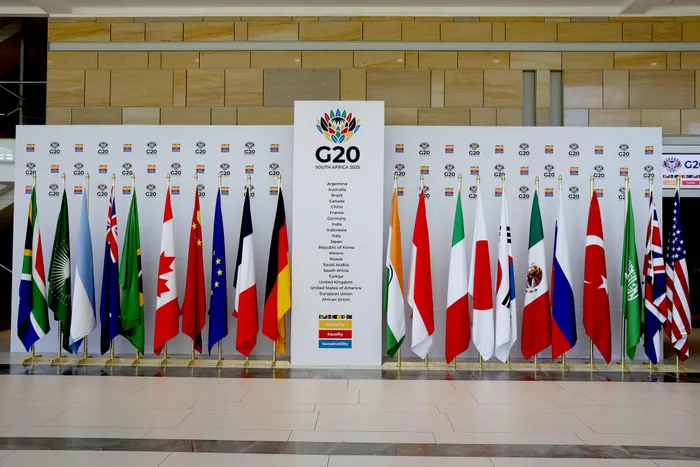
South Africa will host the first-ever G20 Summit on the African continent in Johannesburg in November.
Image: Supplied
South Africa will host the first-ever G20 Summit on the African continent in Johannesburg in November, amid unprecedented geopolitical and economic turmoil.The threat by the leader of the most powerful country in the world, US President Donald Trump, to boycott the summit may be a bit of a downer, but Pretoria is determined to host a successful event and will be banking on support from India, Brazil and other BRICS countries to achieve the goals set out for this year’s summit.
Both India, which hosted the 2023 G20 Summit, and Brazil, which was the host country in 2024, not only share South Africa’s economic aspirations for the developing world and the Global South, but all three countries are also bearing the brunt of some of the harshest US tariffs in the world.
India, in particular, has strong ties with South Africa, going back to the days when Delhi championed the cause of the struggle against apartheid. In addition, the two countries are culturally bound by the presence of the largest number of people of Indian origin (outside of India) in this country.
They have strong economic ties with bilateral trade between the two reaching approximately $19 billion (R331bn) in 2023. Indian exports include petroleum products and motor vehicles, and its South African imports include coal and minerals. There is a significant presence of Indian businesses in South Africa, with investments exceeding $8bn in sectors such as pharmaceuticals, IT, and automobiles.
The G20 summit is likely to further strengthen their bilateral ties, fostering new trade and investment opportunities, and reinforcing their collaboration on behalf of the Global South. Under India’s Presidency and with strong support from Indian Prime Minister Narendra Modi, South Africa’s goal of granting permanent member status for the African Union (AU), on par with the European Union, was achieved in September 2023.This was a significant development, as Modi himself noted at the time: “We are honoured to welcome the African Union as a permanent member of the G20 family.This will strengthen the G20 and also strengthen the voice of the Global South.”
The G20 provides a forum to advance ongoing negotiations for a Preferential TradeAgreement (PTA) between India and the Southern African Customs Union (SACU), to remove existing trade barriers and reduce tariffs. This could lead to an increase in South African exports of chemicals, iron, and steel to the Indian market whilst enhancing the competitiveness of Indian exports, such as pharmaceuticals and vehicles. India and South Africa are competitors in sectors such as textiles and auto manufacturing, which has been one of the obstacles to a successful PTA.
The G20 may help navigate and build consensus in this regard.There is much common ground between India and South Africa regarding the issues facing the G20, including advocating for the removal of intellectual property barriers for essential medicines.
Besides pushing for the removal of restrictive intellectual property rules that hinder the Global South’s access to essential technologies like Covid-19 vaccines and medicines, both have been championing climate action andgreen development.
Pretoria and New Delhi envision a world of inclusive economic growth with sustainable development, food security, and debt restructuring, through the G20’s Common Framework for Debt. Promoting global peace, socio-economic justice, and counter-terrorism efforts are other joint priorities.
Digital Public Infrastructure (DPI) is another shared priority, with both countries using the G20 platform to push for the global expansion of DPI, including digital identity systems and digital payments, as well as addressing associated human rights concerns.
The G20, representing approximately 85% of global GDP and 75% of global trade, is a forum for consensus on critical global economic governance, and an ideal platform for India and South Africa to negotiate for their shared vision of equal development and economic justice.
Fawzia Moodley is a freelance reporter.
BUSINESS REPORT